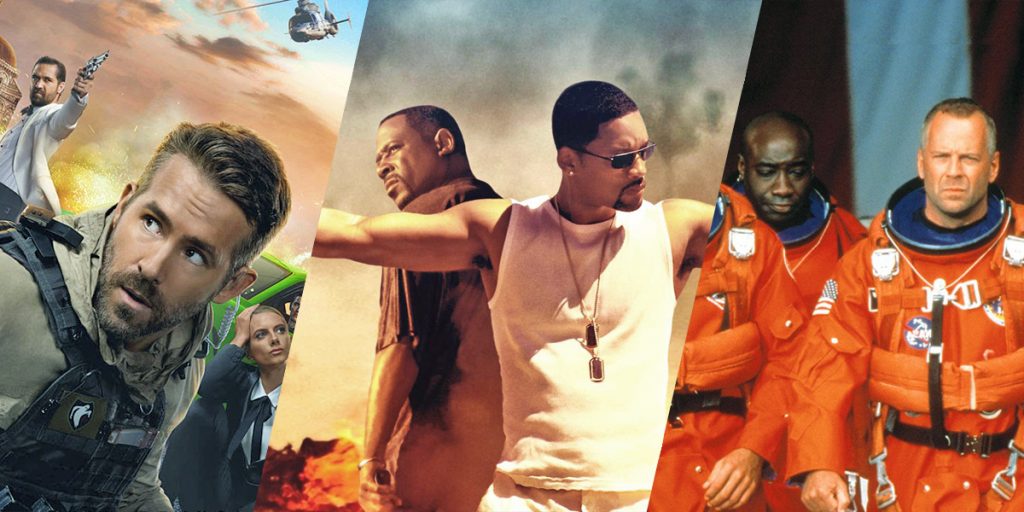Join us on this journey through robot aliens, exploding cars, American culture, and Michael Bay ‘s movies ranked from worst to best.
Famous for his uncompromisingly explosive style, Michael Bay has become one of the most well-known blockbuster directors to ever come out of Hollywood. Bay consistently crafts his work to favor spectacle over substance, and he quickly came to the artistic realization that, by increasingly exaggerating his style, he could derive substance through that very overindulgence. Beginning with the release of Bad Boys in 1995, he has made fourteen movies, all to very mixed reactions. But while he may be sorely lacking in critical acclaim, Bay has always been more of an audience’s director, and his movies consistently gross in the hundreds of millions. He is often lauded as a poster boy for “Vulgar Auteurism,” a movement that emerged in early 2010s cinephilia and film criticism associated with reappraising filmmakers whose work has otherwise received negative reception in the critical mainstream, which is precisely what I would like to do. Here is an evaluation of all of Michael Bay ‘s movies, ranked from worst to best.
10. TRANSFORMERS FRANCHISE
(2007-2017)
Starring: Shia LaBeouf, Megan Fox, Josh Duhamel, Mark Wahlberg, Nicola Peltz, Anthony Hopkins
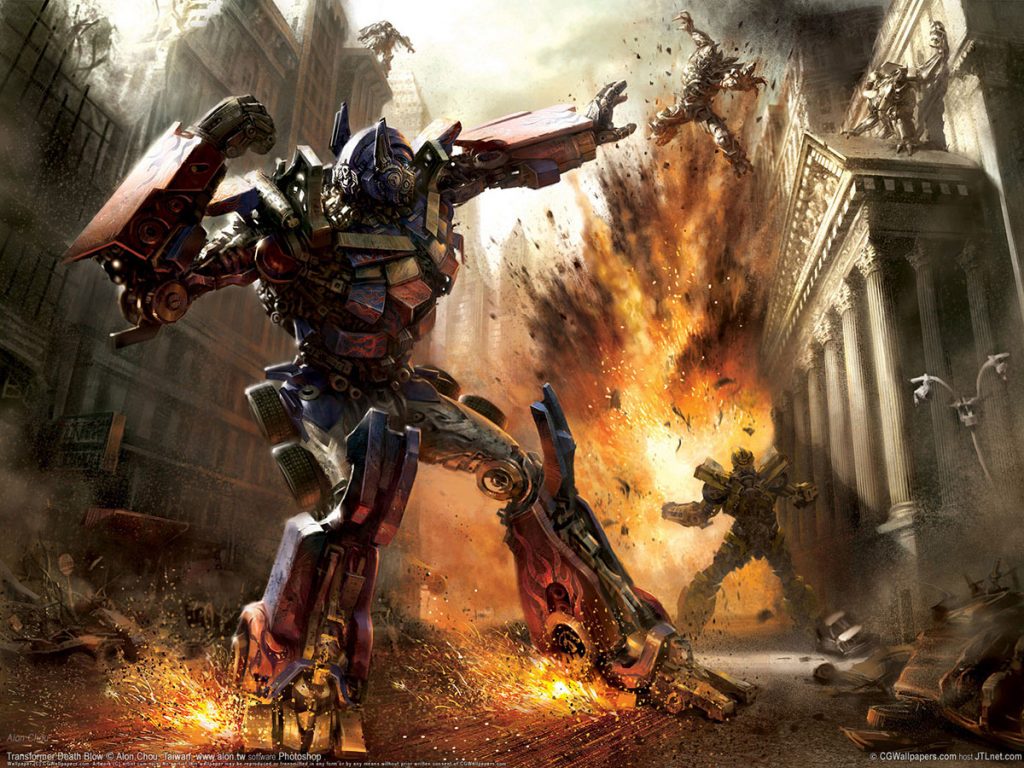
While I don’t think any of Michael Bay’s five Transformers movies are particularly good, I find it nearly impossible to dislike any of them. It’s a grown man playing with action figures, bashing them into each other, crashing as many cars as possible just to see them explode, toppling bridges just because it’s fun to watch them splash into the water. It’s gratuitous, overlong, full of unnecessary moments, but that’s what toys are for. Between the films, Michael Bay alternates between simulating the ideal 13 year old boy fantasy and indulging in his own sophomoric, mindlessly entertaining imagination. But while the vision might be sophomoric, the product is a free-for-all playground of confident over-the-top insanity. It’s hard to be mad at that, though at 150 minutes apiece I do not recommend binging them all in rapid succession to write an article about the director.
9. 13 HOURS: THE SECRET SOLDIERS OF BENGHAZI
(2016)
Starring: John Krasinski, Pablo Schreiber, James Badge Dale
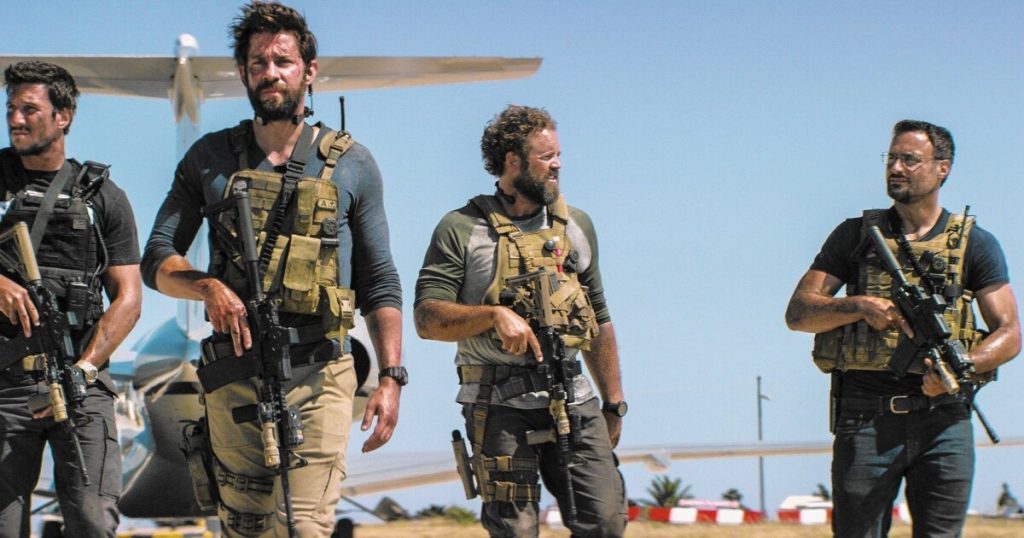
There is a better war film higher up on this list that was released over a decade before this, and ironically it is the development of his style between the releases that shines a light as to why 13 Hours is so utterly incompetent. As most directors develop their sensibilities, their techniques become more refined, but with Michael Bay it’s the opposite, as crude unrefinement defines his entire cinematic philosophy. The director’s best work is when his style overwhelms the substance, but when dealing with American troops trapped in dangerous enemy territory, drowning that out seems misplaced. Bay ramps up the tension but foregoes the emotionality that made his earlier, and admittedly more conventional, movies so exhilarating. For a movie centered around how crucial the lives of the characters are, we get precious little characterization, and that makes it very hard to care.
8. THE ROCK
(1996)
Starring: Sean Connery, Nicolas Cage, Ed Harris
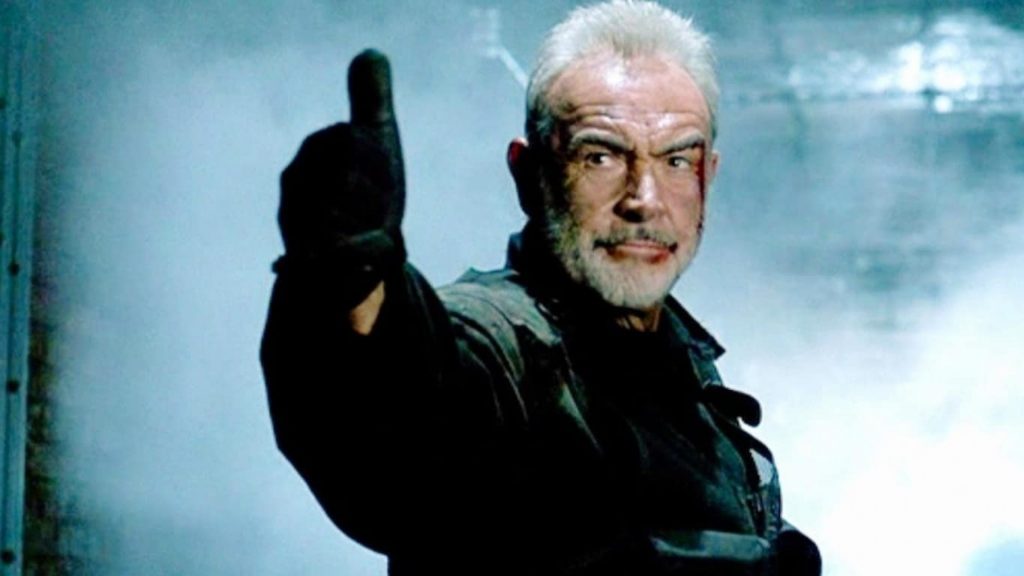
Michael Bay shows early signs of his signature mindless mayhem, as while The Rock is only his second feature and he hadn’t quite reached the level of anarchical lawless Bayhem he would later achieve, there is merit in evaluating this in the greater context of his career. The Rock is a noisy mess, the director’s style so unrefined and nondescript that it often feels like a Roland Emmerich movie, yet for what appears as a fairly basic 90s actioner, Bayrevels in the cruelty of his own tension-building, crafting scenes around races against the clock and high-stakes miscommunication. Bay likes to push the audience’s tolerance, and The Rock is him boldly testing the waters. One of American cinema’s most audacious harbingers of chaos was born here.
7. BAD BOYS
(1995)
Starring: Will Smith, Martin Lawrence, Lisa Boyle
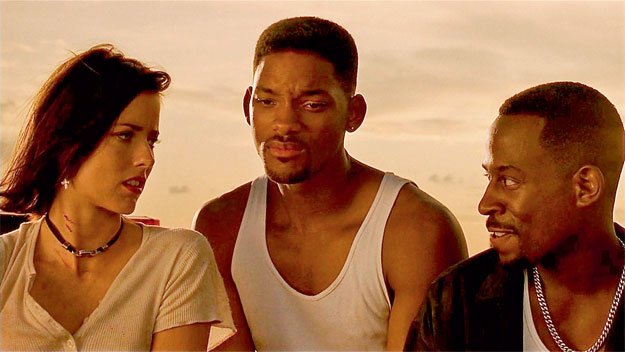
In 1995, Michael Bay literally exploded onto screens with his debut Bad Boys. It’s a pretty tame movie compared to everything he’s made since and leans heavily on buddy-cop clichés, but it glides along on the strength of its charisma and awkward charm, laughing and cheering along with the audience. Even with all the big Hollywood action and explosions, it has an almost ‘little-movie-that-could’ feel, an endearing homely quality that imbues each frame with personality. Somehow Bay has become known as a director of movies without a guiding hand—which makes sense, considering not just his aggressively anti-conventional style but also that he’s most famous from his (intentionally) directionless Transformers movies—but if Bad Boys excels in any area, it’s personality. This is a good movie, but more to the point, it’s a very, very likeable one.
6. PEARL HARBOR
(2001)
Starring: Ben Affleck, Josh Hartnett, Kate Beckinsale
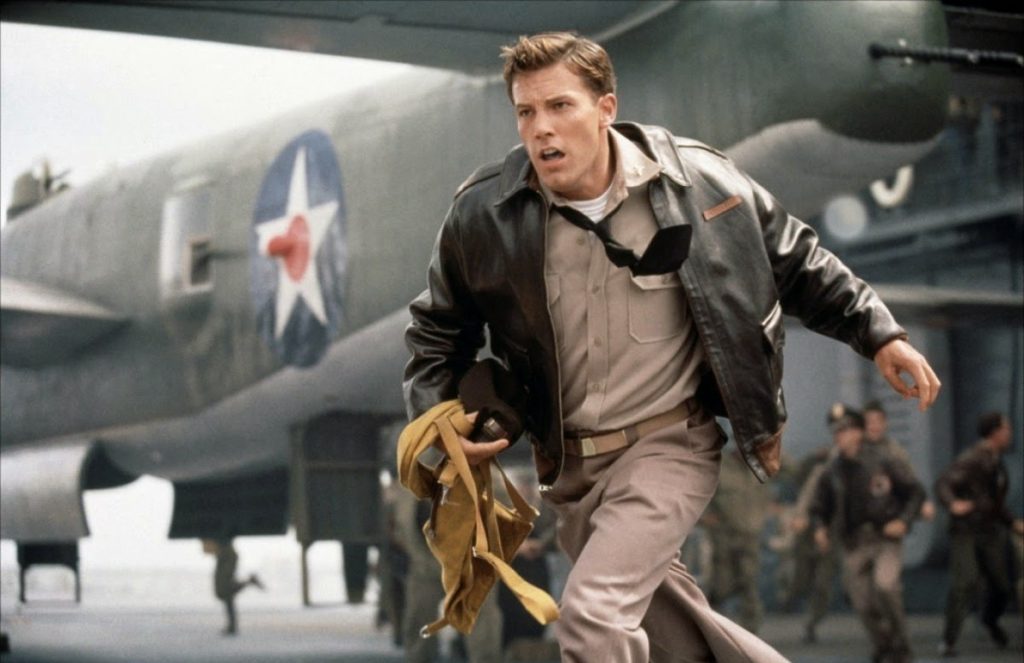
If the artistic progression of Michael Bay’s career is that his style becomes increasingly overbearing with each new film, then it was with Pearl Harbor where he hit the critical intersection on his way between the underwhelming Bad Boys to the depraved nihilistic intensity that is Bad Boys II. Epic in scale with incalculable stakes on a national and global level, but for once Michael Bay grounds the action in characters. Understanding the heroes behind America’s grand explosive entry into WWII as people—their personalities, their sacrifices, their bravery—makes their heroism infinitely more inspiring and substantial than merely hearing tell of legends. Bay’s approach here is similar to Titanic in that he employs the overbearing inevitability provided by the title as foreshadowing while the characters try to establish their lives and ponder their futures, aware of the uncertainty of what’s to come. However, Bay repurposes that weightiness not to highlight the devastating tragedy but to accentuate the heroism of those who face it head on, serving their patriotic duty and standing up for their country. It’s as crowd-pleasing an experience as a script could concoct for an American audience, and as Bay has made consistently clear throughout his career, the American audience is his primary focus.
5. ARMAGEDDON
(1998)
Starring: Bruce Willis, Billy Bob Thornton, Ben Affleck, Liv Tyler, Owen Wilson

If The Rock showed glimpses of Michael Bay’s capability for destruction, Armageddon demonstrates his affinity toward maximalism. There is a powerful sense of urgency that keeps a tight grip as the film is propelled by a relentless energy, and even at 150 minutes every agonizing, exhilarating moment of that pressurized tension is felt. There’s impending global catastrophe and there’s the characters’ interpersonal drama, and Bay doesn’t blend the two storylines so much as pit them against each other. Bay essentially uses the imminent doom as a segue to question the worthiness of trying to prevent it – it’s not just that they must prevent the destruction of Planet Earth, it’s that if they don’t, perhaps humanity is so fundamentally dysfunctional that we aren’t worth saving anyway. The only thing in the way of saving the human race is human behavior. But here we see Bay’s absurdism peeking through the nihilistic facade, as Armageddon is full of genuinely tender moments, underlining the value of humanity. Our value might be subjective, but there’s nothing more valuable than human connection.
4. THE ISLAND
(2005)
Starring: Ewan McGregor, Scarlett Johansson, Sean Bean, Steve Buscemi
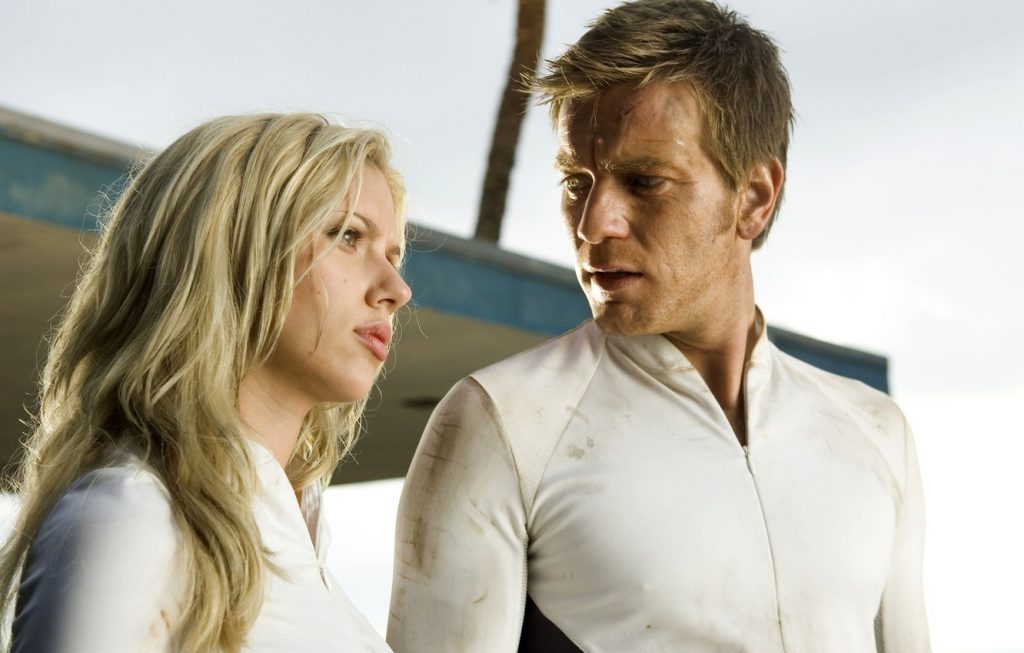
The Island almost completely lacks originality on a conceptual and narrative level, where it is essentially just an amalgamation of several films (improving on George Lucas’s THX 1138 in particular); but this is not a film of ideas, though it admittedly presents itself as such. The straightforwardness of the premise is perfect for Bay, whose style easily overwhelms the surface level substance with such an abundance of stimulating fast-moving imagery and breakneck pacing that it effectively livens the experience in a way that paradoxically adds depth to its fundamentally simplistic premise. Bay isn’t interested in addressing the morality of it all, but in exacerbating the immorality through vulgar directorial excess and heightened intensity. Bay’s directorial approach throws his influences into a blender and serves up not the resulting smoothie, but the chaotic experience of the blending process itself.
3. 6 UNDERGROUND
(2019)
Starring: Ryan Reynolds, Mélanie Laurent
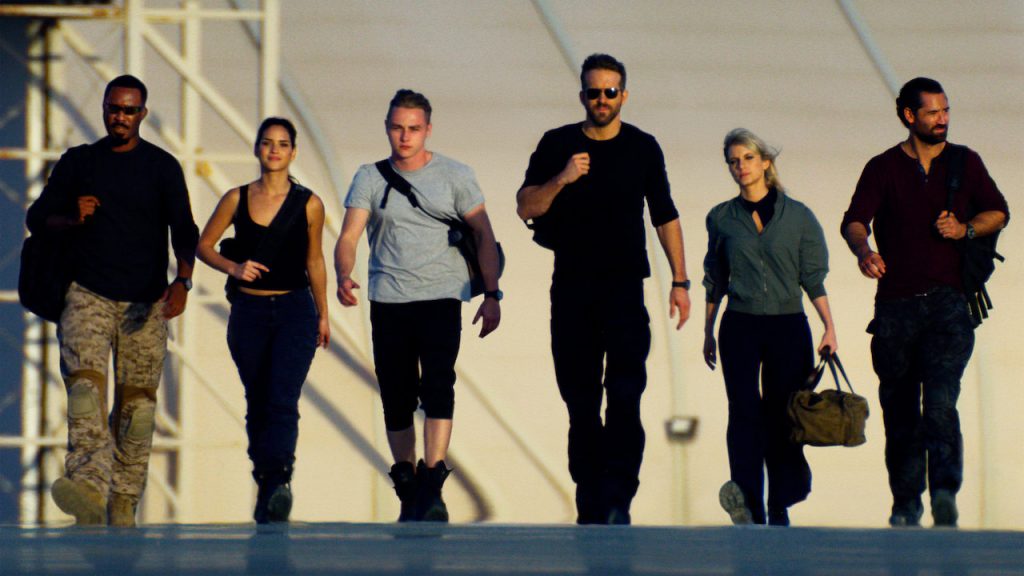
Bay’s most recent film to date was released directly onto Netflix, and even for the categorically chaotic director it is a truly unhinged experience. Bay amplifies pure form, chaos for the sake of chaos, a film relentlessly untethered from the shackles of conventional storytelling. The specific plot minutiae are persistently incoherent, but one gets the sense that’s the point. Through the overall experience, Bay finds meaning in the assaultive absurdity, a sadistic brand of wholesomeness directly within the very turbulence of the human experience. Pure energy undiluted by conventions, 6 Underground is one of the most daring and visually overwhelming action spectacles ever committed to the screen. Sit back, relax, and allow Bay to inject his psychotically brilliant vision directly into your bloodstream.
2. PAIN & GAIN
(2013)
Starring: Mark Wahlberg, Anthony Mackie, Dwayne Johnson
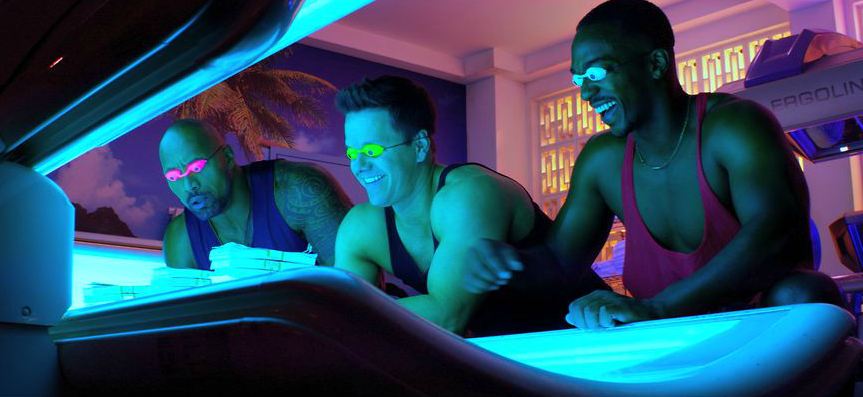
Pain & Gain is peak Michael Bay, the exaggerated overconfident maximalism of his style used to aggressively critique the predatory, desperate nature of capitalism. His outlandish excessiveness matches perfectly with the absurd debauchery of the substance, not so much meeting each other halfway but crashing into each other hard and fast and repeatedly in a whirlwind of oversaturated colors, splattering blood, pitch-black comedy and, fittingly for the director, characters who treat their bodies like robots. But Bay isn’t interested in studying the characters themselves so much as matching their anger and discontent at the American Dream that promised them everything and gave them nothing. With the full force of his most indulgent qualities, Michael Bay’s only non-action film is a forcefully unapologetic and unforgiving condemnation of the American system, and how its establishments are designed to act as a measure against the American dream.
1. BAD BOYS II
(2003)
Starring: Will Smith, Martin Lawrence, Gabrielle Union
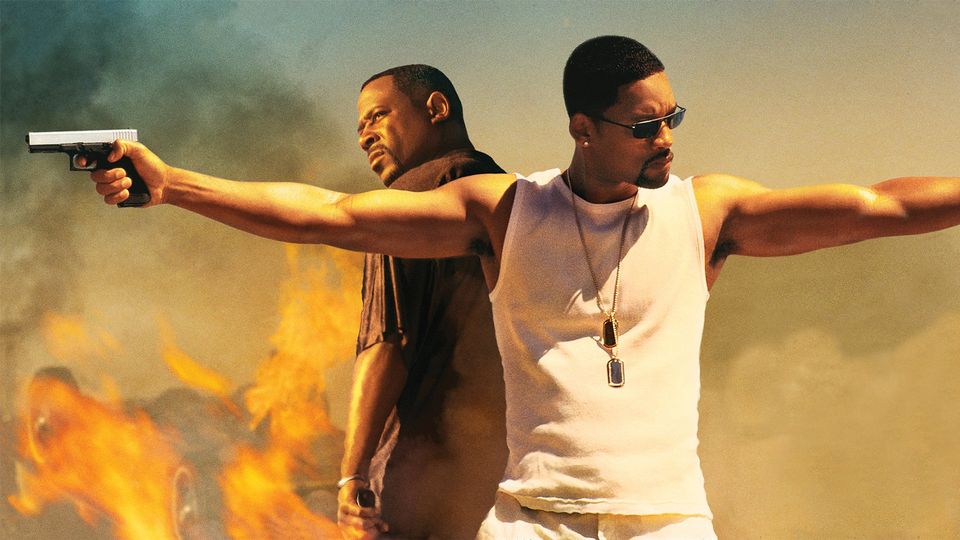
Bad Boys II was the tipping point in Michael Bay’s career, where he transformed from director of crowd-pleasing blockbusters into a rage-filled maniac intent on releasing his wrath upon the world. He grew tired of the boredoms of nature and perhaps even the artistic minutiae of cinema. He makes art, but not thought-provoking high-brow art that gets conventional acclaim. He has a vision, and it’s to make the type of incoherent art that’s professionally reviled. He hears the critical revulsion, and he doesn’t care. Bad Boys II is outrageously vulgar, masking its nihilistic material with over-confident presentation, non-stop exhilaration deflecting from the glaring amorality fueling every action. Bay’s directorial style doesn’t glamorize violence so much as distract from the intrinsically abhorrent nature of it. As Will Smith and Martin Lawrence terrorize the very streets they claim to be protecting, recklessly destroying entire towns and uprooting families from their homes, abducting people from their cars—demonstrating the utter disposability of other people’s values and lives—Michael Bay covers it all up with such a forceful excess of sound and fury, protecting the characters from judgement by actively exaggerating it. Michael Bay is a vulgar auteur, and Bad Boys II is the pinnacle of his vulgar vision.
Ambulance was released in theaters worldwide on April 8, 2022. Read our review of Ambulance.
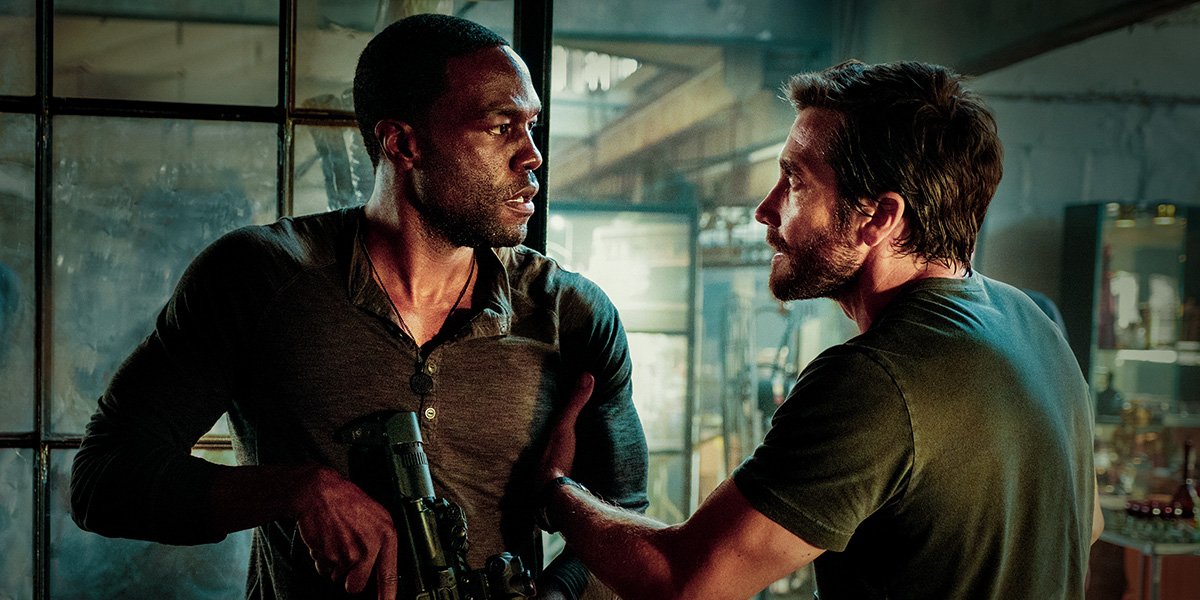
 loudandclearreviews.com
loudandclearreviews.com
